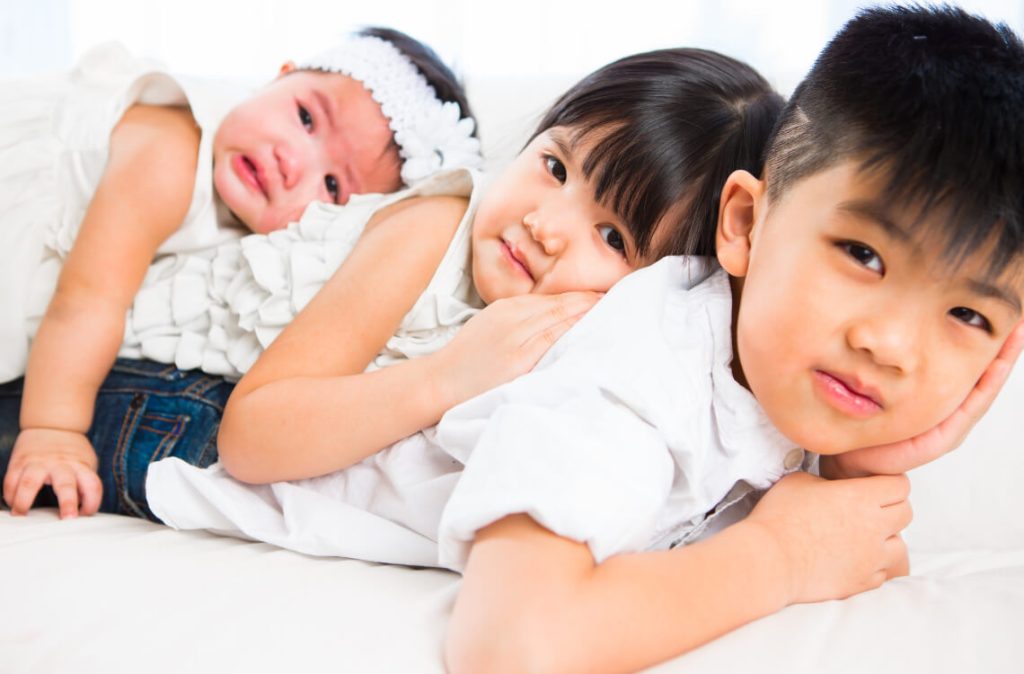“We love all of our children equally” or “The more sibling ties, the better” is something parents always tell themselves.
It is an idea that we as parents constantly try to adopt and implement.
But truth be told, it is not that simple.
Having more than one child may appear easy to some, but we often neglect the need to truly understand the interactions between siblings and how it affects the family members of the household, including parents.
You should know that having a sibling influences both a child’s and a parent’s life in both positive and negative ways.
The Good of Sibling Relationships
Several studies demonstrate that having siblings can have a positive impact on a child’s development in a variety of ways, such as healthy competition or providing a support system for one another.
Nothing really beats that valuable sibling bond that your children can enjoy for the rest of their life.
Having siblings can also allow your children to be exposed to interactions from a young age.
There is a possibility that kids who have siblings will adjust to school easier since they’ve learned how to interact with others at home, share toys, and split television time.
Sibling relationships influence children’s adjustment and development about as much as parenting does. — Mark Feinberg
Parents and families can also benefit greatly from having multiple children.
The most obvious benefit is the additional love and companionship that comes with having more than one child.
After all, siblings often become life-long friends and provide a unique bond that single-child families don’t get to experience.
The Less Good of Sibling Relationships
There are some drawbacks to having more than one child that could affect both the children and the parents.
In fact, kids of younger age might be happier being the only child.
Only-child might find better peace at home with no one to bicker or fight with.
They also don’t need to face inevitable competition or rivalry at such a young age.
Yes, having siblings can help bring the best out of your kids, but sometimes they can also bring out the worst.
Although the competition amongst siblings can be a healthy form of motivation for the kids, it can also lead to jealousy and resentment.
Siblings can also create an atmosphere of competition within the home that can make it difficult for parents to manage.
Meanwhile for parents, having more than one child can cause additional financial and emotional stress as well as time constraints that might take a toll on your marriage.
It’s also more challenging to manage different personalities and temperaments, as well as siblings that may not get along.
Furthermore, parents may become overburdened as they juggle multiple children, work, and other commitments.
Different Child, Different Personality
The way we raise our children varies depending on the stage of our lives and theirs.
Whether it’s our financial condition, emotional maturity levels, or the various stages of our marriage, the environment our children grow up in has an impact on their attitude and personality.
On top of that, the different sequences of genes can play a role in giving each sibling different behavioural and psychological characteristics, therefore creating different sibling relationships.
So, here are some types of sibling relationships that parents should be aware of:
The Best Friends Forever
The very best type of sibling relationships you wish for your children.
To have your children best-friending one another will give you so much peace as there won’t be as many hair-pulling scenes throughout their growth in the household.
The Assistant
This one is the assistant you never wished for but have to live with.
You would sometimes appreciate having your child tattling about his or her siblings but he or she can act like the third parent that their other siblings don’t need.
The Benchmarker
It feels bad to admit it, but sometimes there is a time when you wish your first child would act more like your third or vice versa.
On bad days, you might even accidentally blurt it out and end up hurting your child’s feelings.
This can negatively impact the siblings’ relationship where one might resent the other.
The Bully
Some siblings simply do not get along, and bullying is a prevalent issue in a multi-children household.
This requires a bit more effort to overcome, but as parents, you must act immediately to address this issue before it worsens.
What You Can Do As Parents
Now that you’ve learned about the many sorts of sibling relationships, it is important to pay attention and recognise which applies in your household.
You will then be able to figure out how to offer a safe, healthy, and loving home for your children.
Play important roles as peacekeepers in your household, where you must strike a balance between standing aside and allowing them to figure things out on their own.
Yet, be careful not to entirely disregard and neglect them as kids need to know you are there for them.
You must also give a safe space for each child to express their feelings so that they do not feel left out or that you are siding with anyone.
These are the actions you must take to make sure your family does not have an adverse effect on any of your children that could harm their development and growth, as well as protect the relationships between your children.
You’ve got this, parents!
For more insightful stories and fun recipes, stay tuned to Motherhood Story!
